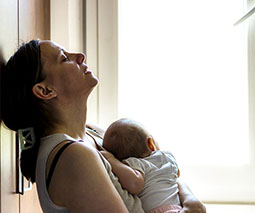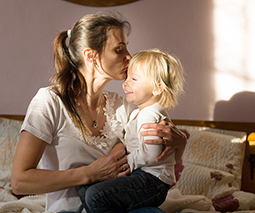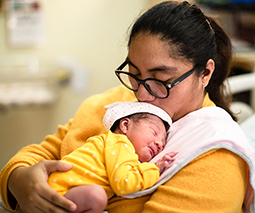Sad mum days? 5 signs you might need some extra support
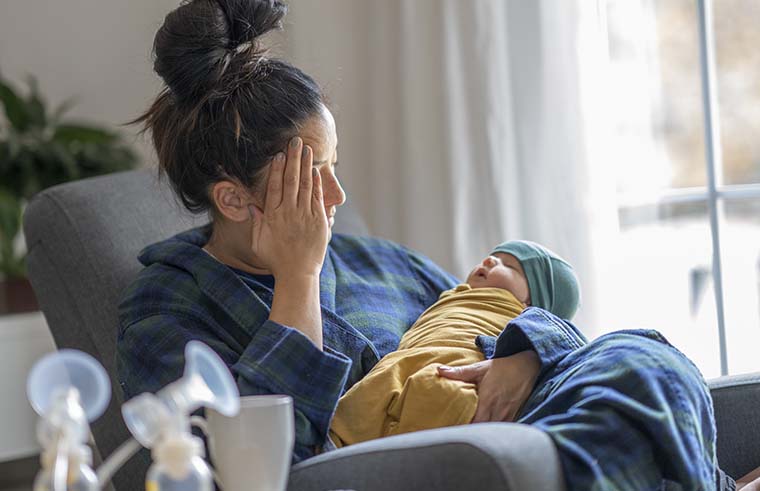
While having a child is often touted as the best time in a woman’s life, for many new mums – and new dads, too – life takes a darker turn when a baby arrives.
Seek help early
This disconnect between how society portrays new motherhood, and how many women actually feel means women have a whole range of complex emotions around what they are going through. They often judge and isolate themselves, and might feel worried about seeking support.
They may be deep in the trenches of surviving new parenthood, genuinely unable to make sense of what they’re experiencing. They may also feel embarrassed about feeling overwhelmed, anxious or depressed, believing that motherhood should come naturally and that they’re somehow at fault.
This is simply not the case.
Not a “bad parent”
“As a mum or dad it is easy to feel guilt and shame that can get in the way of seeking the help you need,” Perinatal Anxiety and Depression support agency PANDA confirms.
“If this is how you feel, know that you are not alone. Having perinatal anxiety or depression does not make you a “bad parent”. In fact, seeking help early leads to a faster recovery with less impact on you, your relationship with your baby, partner and family.”
So how do you know when you’ve reached a tipping point, and that you might need some extra help? Ideally, don’t wait until you reach a tipping point.
All new parents are deserving of compassion and support and they don’t need to be at crisis point to take steps towards being better supported.
If you’re finding yourself exhibiting any – or several – of the following then it’s time to chat to your partner, best friend, mum, sister, brother, GP or other health professional.
5 signs you might need more support
1. Constantly feeling hopeless, worried, teary or sad
If your feelings are overwhelming you, sneaking in when you least expect them or simply dominating your day, it’s important that you don’t suffer in silence. Remember, self-care must come first. Some extra support can help you to regulate these tricky feelings and give you a breather from the overwhelm.
2. Feeling very anxious, angry or panicked on a regular basis
Anxiety can be debilitating, especially if you add a new baby to the mix. For some, anxiety may look more like anger – or perhaps an overwhelming state of fear or panic. Anxiety can be very hard to move out of when it hits, and frankly this is no way to live.
If you’re dealing with anxiety, anger or panic on a regular basis, you don’t have to put up with it. A trusted professional is there with strategies to fight these scary adrenaline-sparking states.
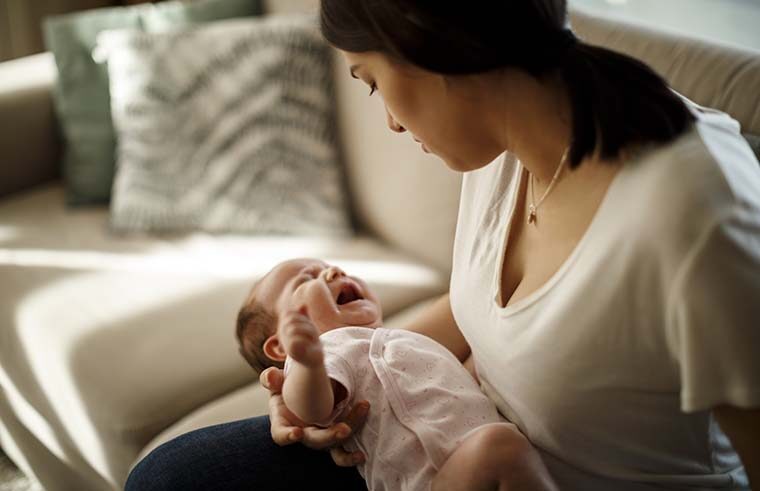
3. Isolating yourself or worrying about seeing people
Perhaps you are feeling so out of sorts that seeing your friends or family seems too difficult, and small talk near impossible. Please know that other mums (and non-mums) have felt the very same way before you. You are not alone. Talking to someone you trust about why you feel safer at home alone is a great idea.
If you don’t have a friend or family member, book into your GP for a longer consultation and write down some rough points detailing how you’ve been feeling. If you’re unable to chat to the doctor when you go in, at least you have some dot points to get the conversation started and take important next steps toward feeling more like yourself again.
4. Having trouble getting dressed, sleeping or eating
Sometimes, before we know it, we’ve retreated from the world in ways we hadn’t intended. This is a sign that you need some extra nurturing and kindness. Talking to a trusted person or medical professional, saying something such as “I don’t feel like myself.” is a great place to start.
5. Feeling like you have no energy
Feeling like you have not one iota of energy to do things that you used to find a breeze tells you that something is amiss and you should address it.
Chat to your maternal child health nurse, GP or someone you feel close to about how tired and lacklustre you are feeling. Point them to this article and tell them you’re feeling pretty awful, and would like some help to feel at least a little better, with their assistance.
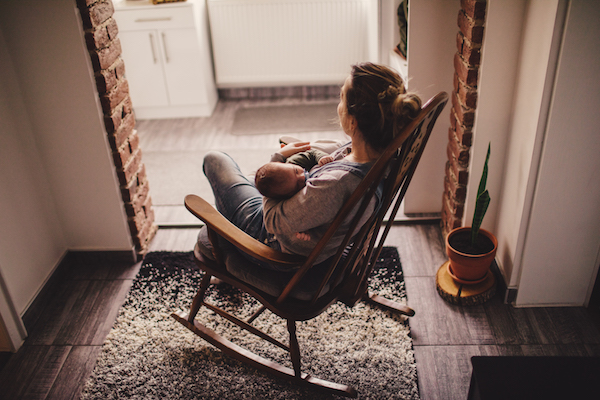
Finding support
If you’re not sure where to begin when it comes to professional advice and support, we’ve got you covered. Here are some good places to start. Think about who on this list you feel most comfortable talking to, and go from there.
- A close family member of friend
- Your local GP
- Your obstetrician, midwife or doula
- Your maternal child health nurse
- Your community health centre
- A local psychologist
- The National Perinatal Anxiety & Depression (PANDA) Helpline – 1300 726 306
Hours: Monday to Friday 9am – 7.30pm (AEST/AEDT) - Parent Line – 13 22 89
- Beyond Blue
- Lifeline
If any of these symptoms ring true for you, please know that the changes you are experiencing are treatable AND they’re signs that you need some looking after and support.
Every parent should be compassionately supported as they learn to balance their child’s needs with their own. Taking that first step to reach out for some help – via a friend, GP or other support service – is a vital first step.
You’re not alone. These are not signs of a crappy parent. And you deserve to have much, much better days.
This is someone I know, how can I help?
If someone you know seems to be struggling, Panda advises you can:
- Gently ask if they are able or willing to share what is going on
- Reassure them that they are not alone. There are things that can be done to help.
- Suggest that they speak to their GP, other trusted health professional or PANDA.
- Phone PANDA for further guidance on how best to support them.
Support service phone numbers
PANDA – 1300 726 306 – Monday to Friday 9am – 7.30pm (AEST/AEDT)
Beyond Blue – 1300 22 4636 – 24 hours a day, 7 days a week
Lifeline – 13 11 14 (Live chat is also available from 7pm to midnight)
 Need some support to be the best parent you can be? Our Parent School parent coaching experts can help. Click to find out more or book a one-on-one session.
Need some support to be the best parent you can be? Our Parent School parent coaching experts can help. Click to find out more or book a one-on-one session.

